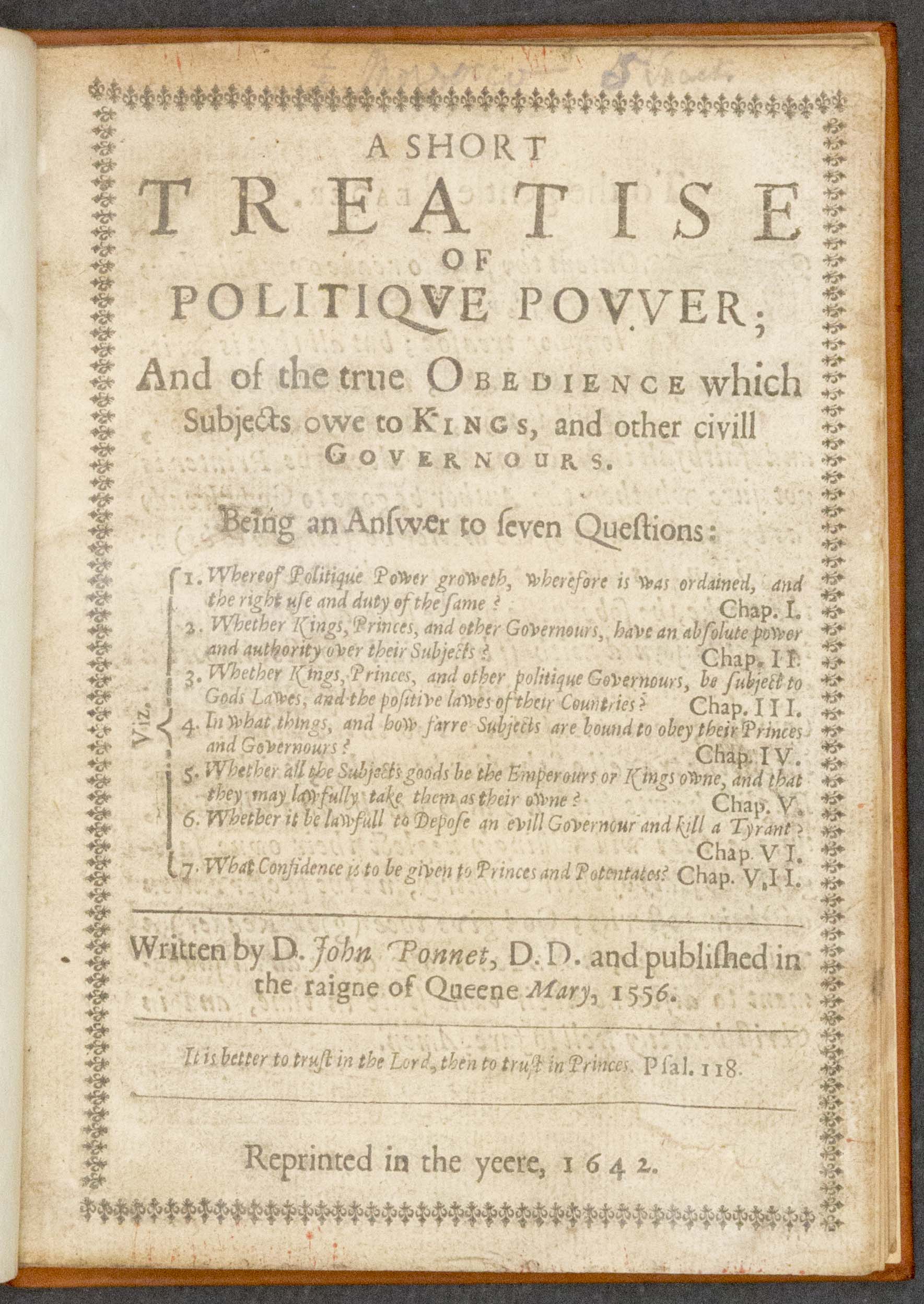
John Ponet
London: [s.n.], 1642
[G.L.] 1642
This is the best-known work of John Ponet (c.1514-1556), deposed bishop of Winchester. He wrote it in 1556 as a Protestant exile in Strasbourg under the Marian regime. The pamphlet’s immediate cause was to justify resistance to Mary Tudor, of whose atrocities stories were circulating among the exiles, and her enforcement of Roman Catholicism. But more than any other anti-Marian tract, it is political theory, looking at the origins, exercise and extent of political power on broad constitutional principles, rather than arguing on religious grounds. Whereas the standard contemporary viewpoint was that a tyrant was a divine instrument sent to induce repentance, punish the wicked, and to humble and strengthen the faithful, Ponet argued for a duty of resistance to an injurious monarch which could extend to deposition and even tyrannicide; by exceeding his or her office, the monarch would have become a common criminal. The treatise highlights an aspect of the Reformation’s influence in the seventeenth century. Ponet postulated a commonwealth in which a substantial measure of power rests with the people. This reprint is from the eve of the civil war, when questions of a ruler’s obligations and regicide became political realities.